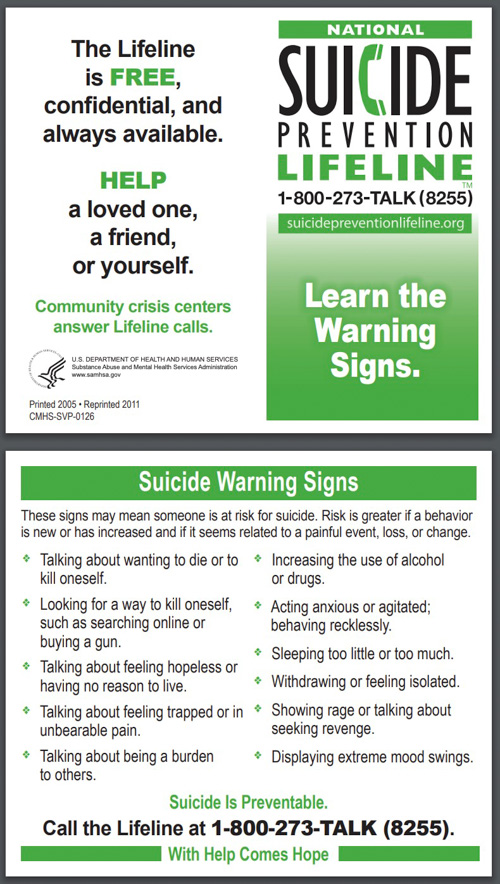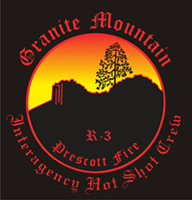The number of wildland firefighters who have resorted to suicide is shocking — 52 in a two year period, 2015 to 2016. According to Nelda St. Clair of the Bureau of Land Management so far this year there have been another 16.
Wildland firefighting is a niche within the firefighting world. High rates of structural firefighters taking their own lives have been known for years, but these kinds of “astronomical” numbers, as described by Ms. St. Clair, in a much smaller population is stunning. There are only about 13,000 wildland firefighters in the five major federal land management agencies, along with several thousand others working for state and local agencies. It is likely that most of them personally know a firefighting brother or sister who succumbed to what might be called an epidemic.
Assuming for a moment that there are 17,000 wildland firefighters in the United States, approximately 0.3 percent of them took their own lives in 2015 and 2016 — a shocking percentage.
Most firefighters in general, and in particular, wildland firefighters, have a macho, can-do attitude, regardless of their gender. Just give them an objective, and they will figure out how to get it done, with little or no outside help. This can carry over into their personal lives and mental state. When the fire season is over their environment may shift from being part of a close brotherhood working with their buddies for long hours toward a common goal, to something completely different. The reduction in adrenalin and accomplishment of important tasks is more difficult for some to adjust to than others. Suicide rates can rise during the wildland fire off-season.
The fact that a national publication, The Atlantic, has published an in-depth article on the issue is an indicator of the seriousness of this problem. I suggest you read the entire article, but here is an excerpt:
…It’s hard to quantify both completed and attempted suicide rates in populations that aren’t prone to talk about mental health, but both factors are known to be high among “structure” firefighters—those who fight fires in buildings—and members of the military who face similar traumatic, high-stress situations as wildland firefighters. Jeff Dill, a captain at a fire station in Inverness, Illinois, and the founder of the Firefighter Behavioral-Health Alliance, which tracks firefighter suicides, says firefighters are more likely to die by suicide than in the line of duty. In a 2015 study on suicide risk in firefighters, half of those who responded reported that they’d contemplated suicide.
Those concepts align with the wildland reports: St. Clair says they’ve lost five smoke jumpers to suicide in the last seven years, and had two in-the-line-of-duty deaths in the same period. But while structure and wildland firefighters are similar, the groups aren’t perfect analogs, which is why it’s particularly hard to address some of the most insidious risks for wildland firefighters. Urban firefighters, and people who fight structure fires, will usually have year-round work, health insurance, and mandatory trauma training. Their support system is fundamentally different…
The Wildland Fire Lessons Learned Center’s Spring 2017 edition of Two More Chains was dedicated to this issue. An excerpt:
…In researching suicide in the wildland fire service for this issue of Two More Chains, it has been brought to our attention that, in some cases, a stigma regarding employee suicide has been observed not so much among young firefighters—who, it is said, are more open to addressing their emotions—but among some more senior wildland fire and agency managers who are apparently uncomfortable addressing the topic of mental health.
Unfortunately, we have learned that, in at least one instance, a fire manager believed that a firefighter who had died by suicide should not be entitled to an honor guard or a memorial stone in the Wildland Firefighter Foundation monument at NIFC, “because it would dishonor those who died innocently.” Similarly, we have heard about fire managers who have declined offers of free critical stress debriefings for their staff after a coworker suicide—without even asking their staff.
It’s also been brought to our attention that employees have been directed not to send emails that contain information about someone dying by suicide or to mention it in staff meetings—even though the victim’s family has been open about their family member’s cause of death.
We hope and believe that these are isolated incidents. That they are exceptions to the positive efforts that our fire agencies are currently pursuing—reflected throughout the input from our agency SMEs that is shared in this issue’s “SME Insights and Info” document.
By openly addressing the topic of mental health among our employees we can embrace the notion that this issue is no different than any other injury or disease.
We need to help ensure that all of our managers and senior leaders are on board with this enlightened perspective. We should not blame the victim, or treat the person in pain as “weak,” or otherwise refuse to acknowledge their mental health problems.
To be sure, if safety is truly our top priority, then it is our duty to take care of all of our people…
Two More Chains highlights work that is being done on this issue by several people, some of whom are intimately familiar with wildland firefighting. Patty O’Brien worked for 10 years on the Lolo Interagency Hotshot Crew and has a total of 15 years’ experience as a wildland firefighter. She is a fifth year PhD candidate in Clinical Psychology at the University of Montana.
Kim Lightley writes about how she experienced Post-Traumatic Stress Disorder after nine of her fellow crewmembers of the Prineville Hotshots were killed on the 1994 South Canyon Fire along with five other firefighters. After dealing with depression and survivor’s guilt for two years she sought counseling, which helped.
She wrote in Two More Chains:
When I was in the depths of PTSD—because I had all the symptoms—it would have been really awesome if somebody would have come up to me and said: ‘Hey, what you’re experiencing right now is normal, because what you experienced is very abnormal’. If I had heard that, I think I would have felt less crazy.
Today she is the Critical Incident Response Program Management Specialist for the U.S. Forest Service’s Fire and Aviation Management program.
Amanda Marsh’s husband Eric Marsh was one of the 19 firefighters that perished on the Yarnell Hill Fire in 2013. She established the Eric Marsh Foundation which is committed to serving those directly affected by wildland line-of-duty deaths, as well as living wildland firefighters and their families. We asked for her insight:
It saddens me greatly knowing that our wildland firefighters are suffering. In 2015 I came very close to ending my life. I have PTSD and we are not talking about this enough in the fire service, wildland or structure.
PTSD is cumulative. Every traumatic event builds upon the last one, creating a situation where sometimes we feel so hopeless and so helpless that taking our lives seems like the only way out.
At the end of the season the fire family often disburses and the support that was so available during the fire season is no longer present in the way it was. We must begin talking about PTSD in every department, every agency. Our wildland firefighters deserve better, they deserve the ability to discuss openly and without fear of judgement when the stresses of the job begin to compound. I am talking about PTSD, I am talking about suicide openly because it is the right thing to do.
There is help out there. Call the Suicide Prevention Hotline (1-800-273-8255). We also offer help through the Eric Marsh Foundation for Wildland Firefighters by helping wildland firefighters get treatment for PTSD. You are not alone. There are many of us who know how you feel. You are loved and you are seen and you are valid.
Further reading
The Wildland Fire Lessons Learned Center solicited and received insight from six wildland fire agency subject matter experts about the wildland firefighter suicide issue.
Help
- National Suicide Prevention Lifeline: 800-273-8255. Online Chat.
- Anonymous assistance from the Wildland Firefighter Foundation: 208-336-2996.
- National Wildland Fire and Aviation Critical Incident Stress Management Website.
- Code Green Campaign, a first responder oriented mental health advocacy organization.
- Would you rather communicate with a counselor by text? If you are feeling really depressed or suicidal, a crisis counselor will TEXT with you. The Crisis Text Line runs a free service. Just text: 741-741

Thanks and a tip of the hat go out to Brian.
Typos or errors, report them HERE.



